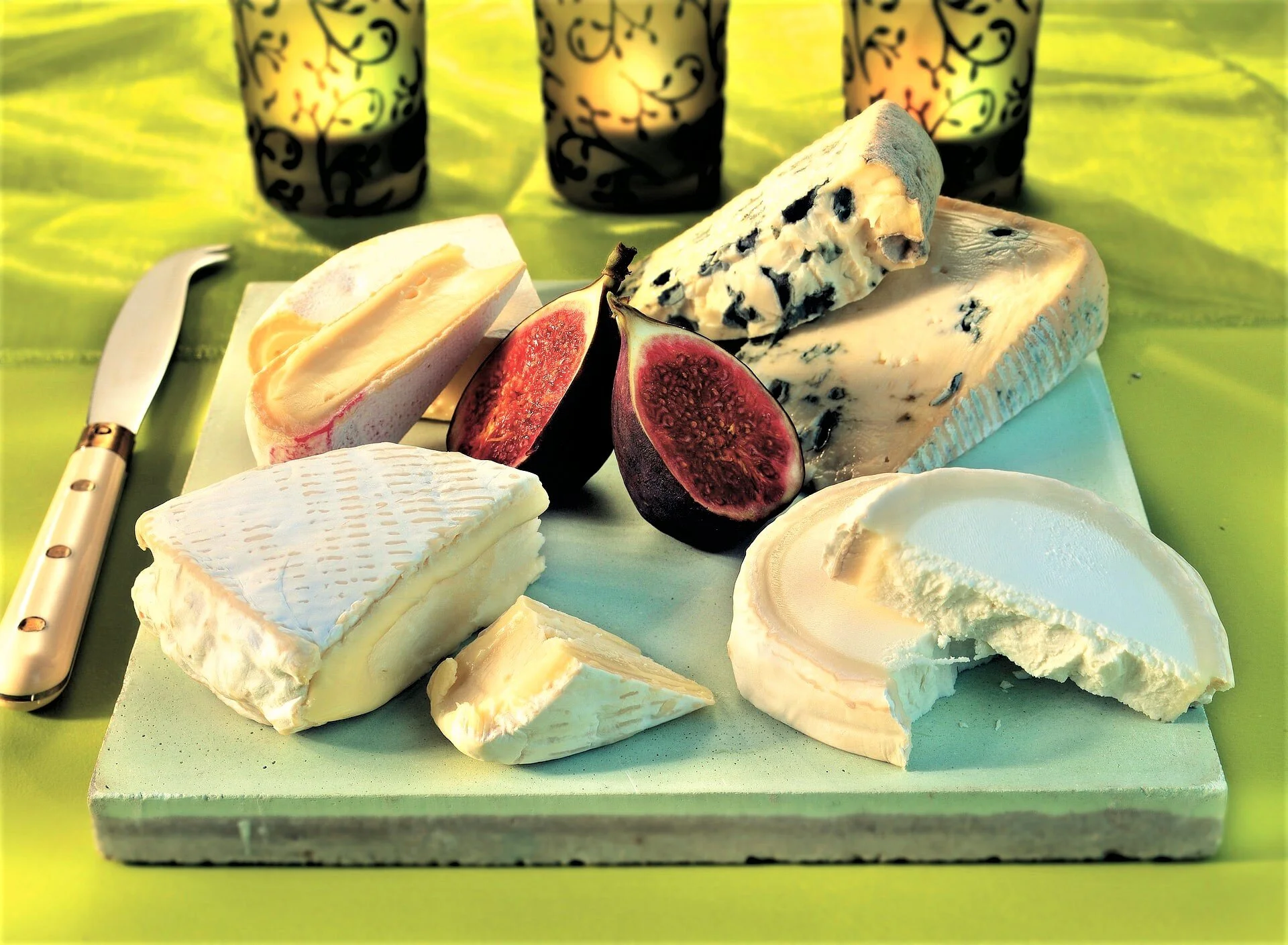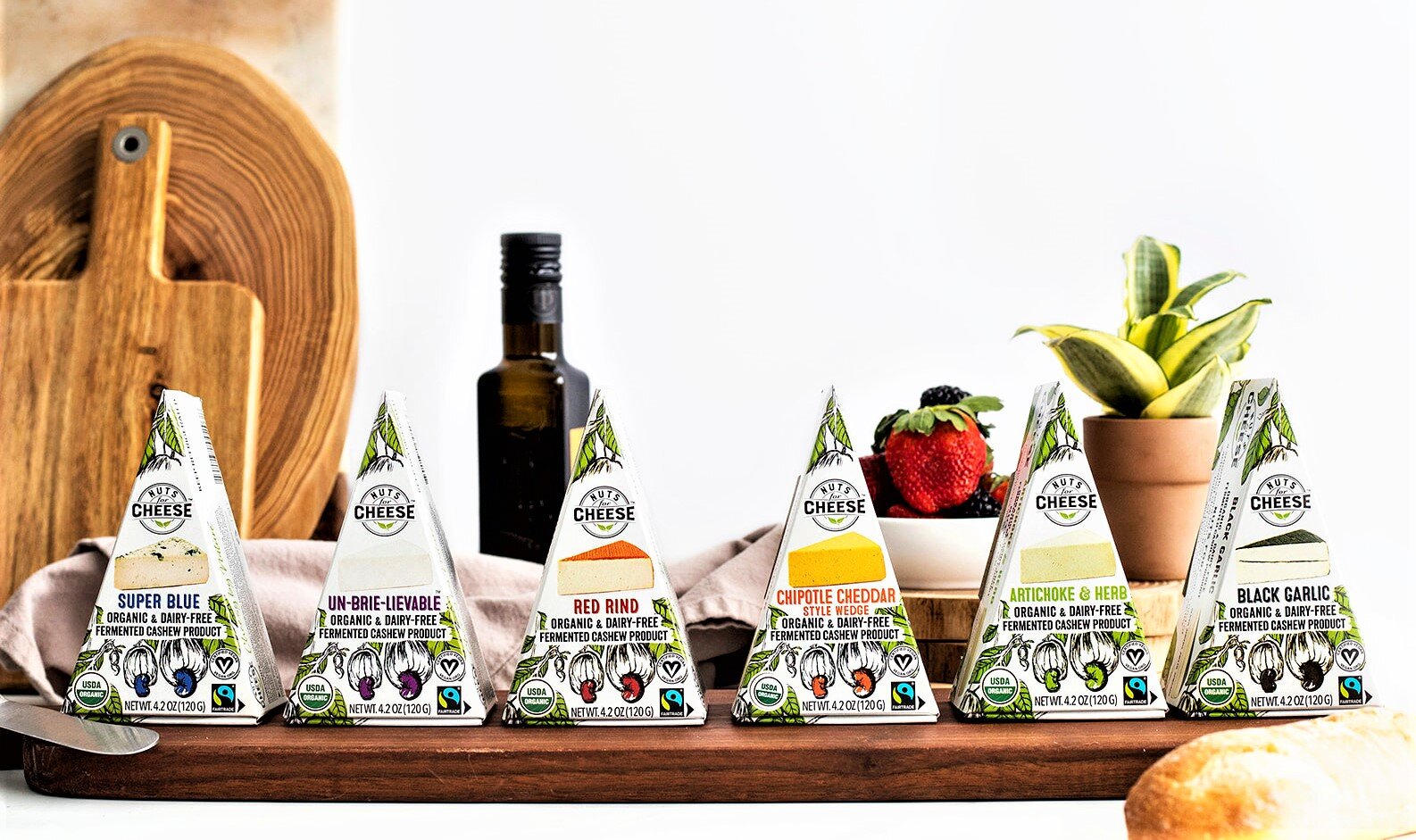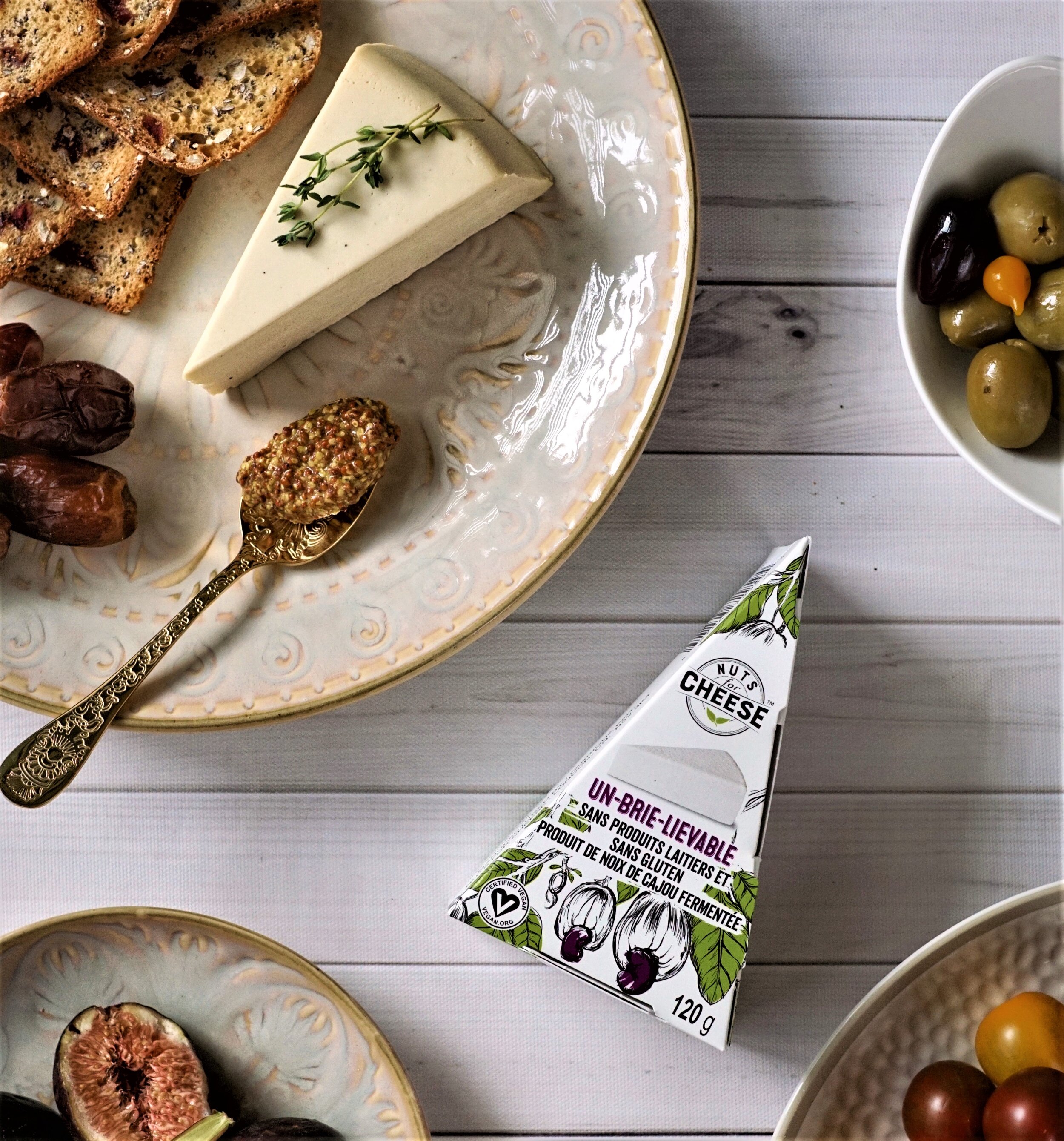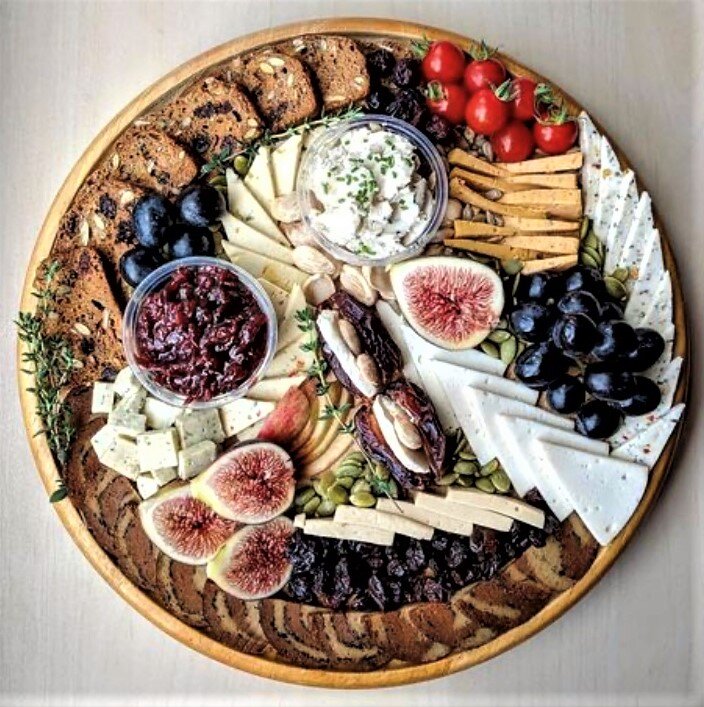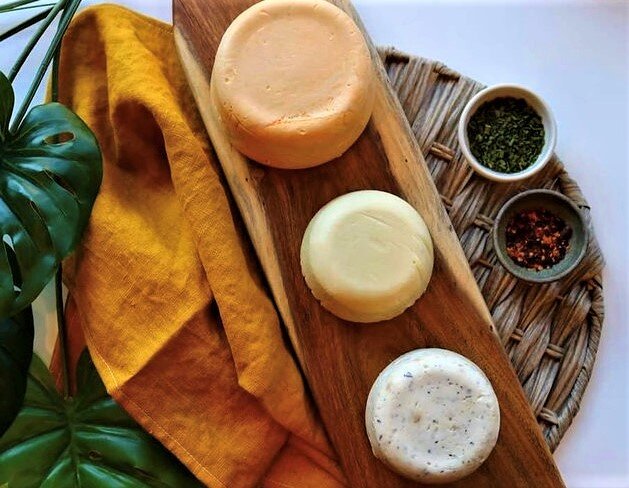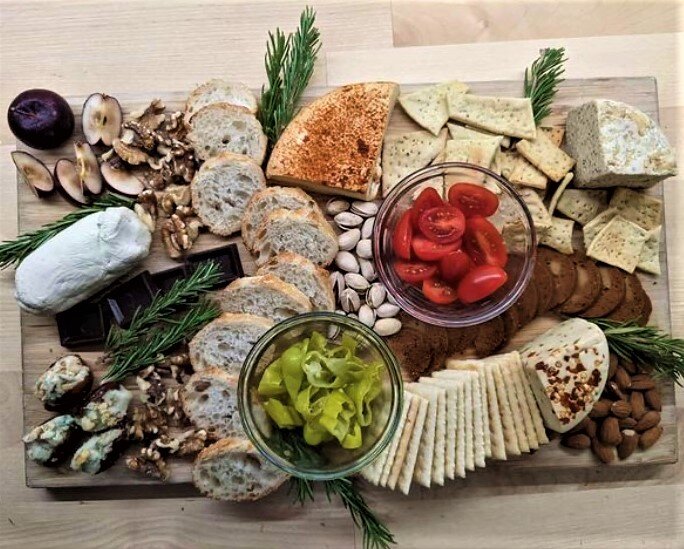By Jessica Scott-Reid
Jessica is a Canadian writer, animal advocate and plant-based food expert. Her work appears regularly in media across Canada and the US.
“But I just couldn’t live without cheese!” It’s a common declaration made in conversations around plant-based eating. While most of us now know that cutting back on animal products is key to curbing our individual eco-footprint, knowing can be easier than doing. Swapping out that beef burger for a plant-based alternative is one thing, and opting for tofu in your stir-fry over chicken is definitely doable. But cheese?
Cheese is just too good to give up! In fact, dairy-based cheese may even have addictive properties. But what if caring for the planet and animals can coexist with that understandable cheese obsession? Makers of plant-based cheese have made that addiction easier to break than you think. Their products have evolved at lightning speed in recent years, to appeal to flexitarians, those with dairy allergies, and anyone looking to reduce their intake of saturated animal fats. So, today, the booming dairy-free cheese market is being driven by a broad segment of plant curious consumers.
According to a 2020 market research report, the $1 billion global plant-based cheese market is expected to increase at a compound annual growth rate of 12.8% from 2020 to 2027. This growth is being driven primarily by flexitarians and also by millennials concerned “about the animal cruelty and the negative impacts on the environment caused by the dairy industry.”
Other market research shows that between 39% (Nielsen) and 47% (One Poll) of US consumers identify as flexitarians when defined as those actively working to reduce meat and dairy on their menus while eating more plant-based foods. And 43% of flexitarians said this is a permanent lifestyle change.
Photo: Alex Haney on Unsplash
A recent survey commissioned by national grocer Loblaws, found that nearly half of Canadians are interested in trying plant-based alternatives. “They are people just willing to try new plant-based things,” says Canadian PR specialist Candice Best, who represents global plant-based cheese brand Violife, in Canada.
Best explains that today’s plant-based cheeses, including Violife, not only fulfill flavour and texture expectations, but also perform like dairy cheese and “will melt as needed for a mac and cheese,” for example. Thus, “people are becoming more adventurous,” adds Best, “and they are also understanding the climate connection.”
Indeed, when comparing the eco-impact of dairy cheeses to plant-based alternatives, the science is clear: cheeses made from nuts, coconut and/or tofu win out. The base of dairy cheese is of course milk — from cows, goats or sheep — which requires much more water and land to produce, and emits significantly more greenhouse gases. According to the BBC, the dairy industry’s emissions were “equivalent to more than 1,700 million tonnes of CO2” in 2015 which made up “3.4% of the world's total of almost 50,000 million tonnes that year. That makes dairy's contribution close to that from aviation and shipping combined.”
Generally speaking, according to environmental researchers Poole and Nemecek, even the highest impact plant foods emit less greenhouse gasses than the lowest impact animal foods.
Photos: Courtesy of Nuts For Cheese
Candace Campbell, business development manager for popular Canadian plant-based cheese brand Nuts For Cheese, also points to product placement as an emerging strategy for putting these cheeses under the noses of a broad range of consumers. “More and more often we are finding our retailers will integrate our products right alongside the dairy cheese,” she says. “Which means more people are trying vegan cheese and becoming flexitarians.” The creamy Nuts For Cheese products, in flavours like Un-Brie-Lievable and Smoky Gouda, are often served when entertaining, Campbell adds. “People are usually including a dairy-free option these days for their guests.”
But this cultural and culinary shift is due not only to a rise in curiosity and conscious consumerism, it’s also because of increasing awareness of dairy allergies. Market research shows that “lactose intolerant people are one of the key consumers in the industry.” According to the US National Institutes of Health, around 65% of global consumers “has difficulty digesting lactose, representing a vast targetable consumer base. With growing health awareness, consumers have been opting for dairy-free products.”
Photos: (l) Robyn Katie; (c) Dallas Cant; (r) Jamil Mahmood. Courtesy of Vegan Fromagerie
Manitoba artisanal cheesemaker Céline Land, says her Vegan Fromagerie products appeal to a broader market including those who are lactose intolerant. She reports recently having a customer thank her for her nut and tofu based cheeses, “because it allows them to feel like they can still have the joy of the flavour, without the pain of dairy.”
The options for accessing dairy-free cheeses are now abundant — in stores, from local artisans, and they can even be made at home. Cashew based camembert, tofu based feta and even veggie based mac and cheese sauce are easy to make, easy on the environment, and easy on the arteries. And opting for a dairy-free cheese will reduce demand for a product that also comes with many animal welfare concerns.
The best news is your love affair with cheese does not need to be at odds with your efforts to be a more caring consumer. Simply divert your gaze from one section of the cheese aisle to another. Delicious alternatives await.

